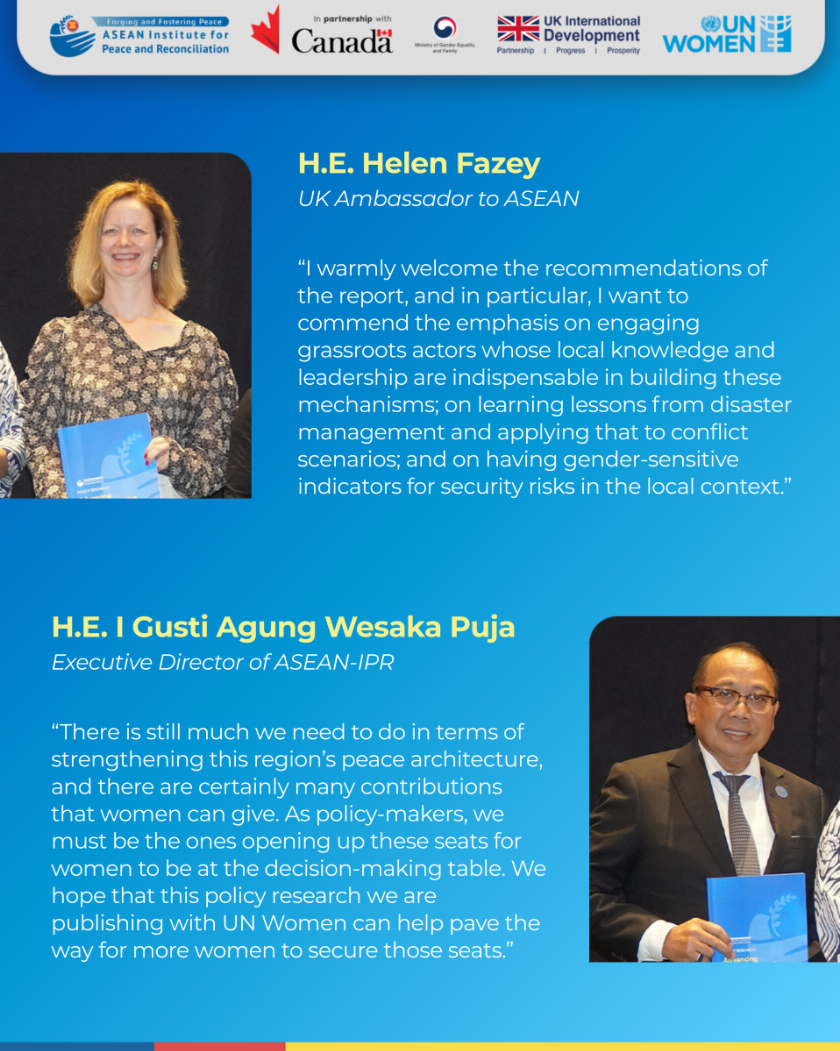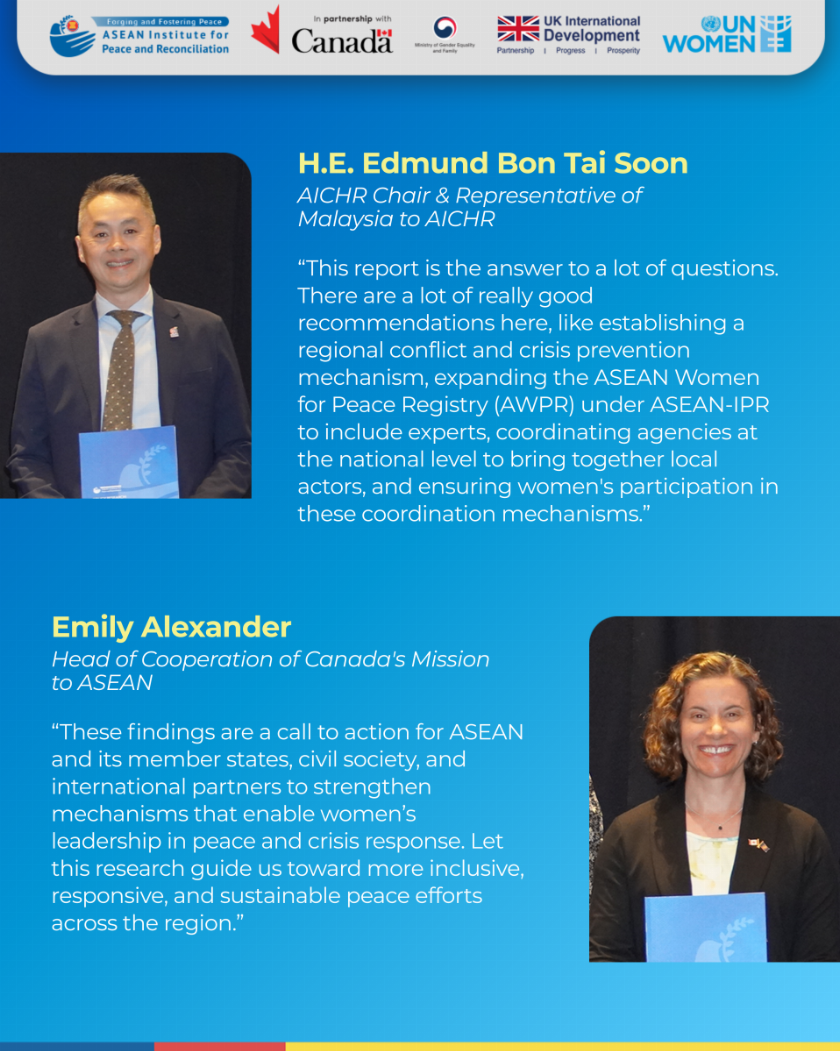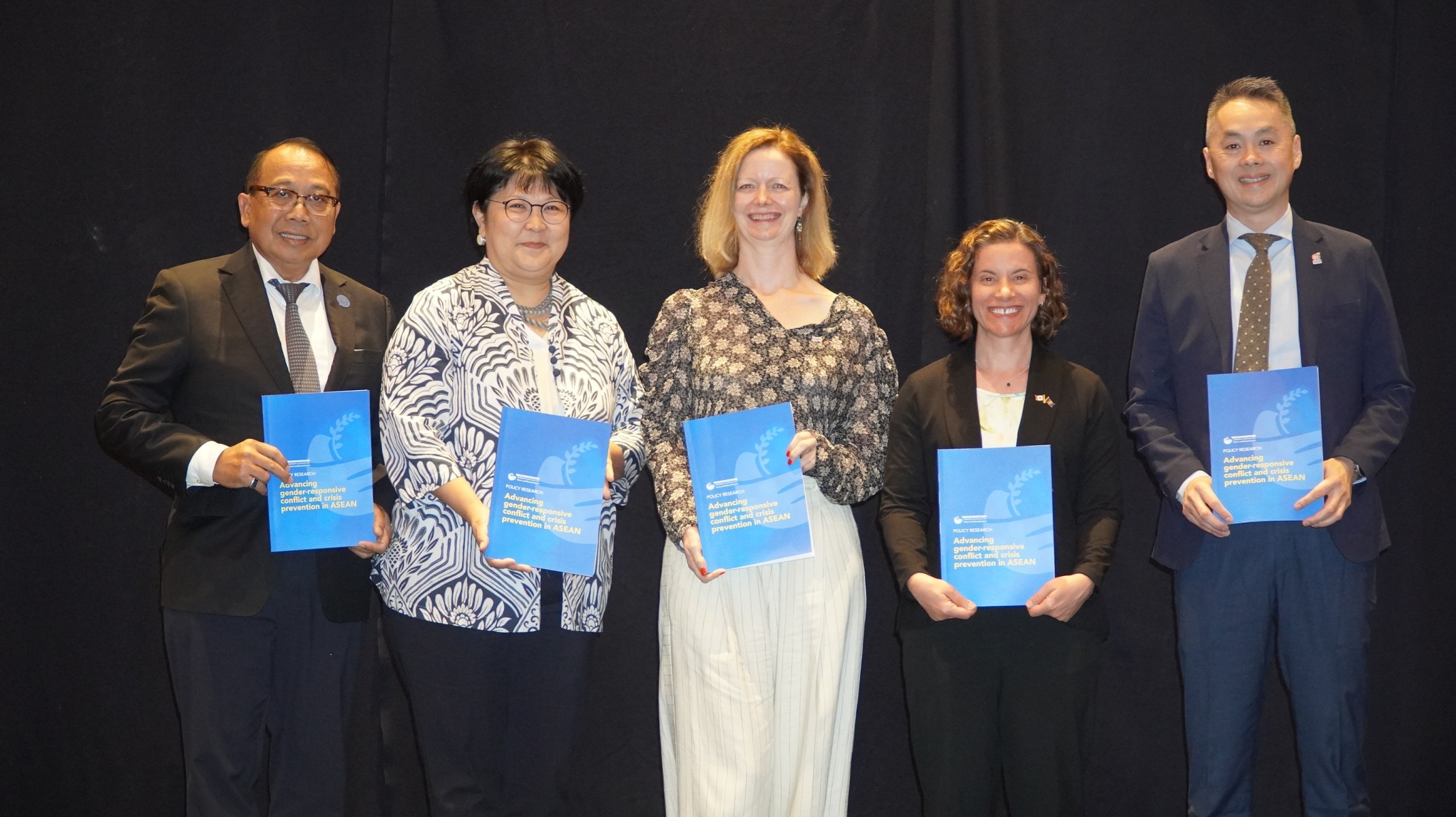Official Launch: New Policy Research on Advancing Gender-Responsive Conflict and Crisis Prevention in ASEAN
13 August 2025
Jakarta, Indonesia
ASEAN Institute for Peace and Reconciliation (ASEAN-IPR), in collaboration with UN Women, launched a policy research report titled “Advancing Gender-Responsive Conflict and Crisis Prevention in ASEAN” on Wednesday, 13 August 2025. The launch took place back-to-back with the Workshops on Intersection between Conflict and Human Rights: Pathways and Approaches to Peace in ASEAN – an initiative led by the ASEAN Intergovernmental Commission on Human Rights (AICHR), partnered with ASEAN-IPR, and supported by UN Women, Canada, UK and the Asia-Pacific Centre for the Responsibility to Protect. The launch was attended by all participants, experts, speakers, facilitators and resource persons of the Workshop.
The Report identifies gaps and opportunities for strengthening peace infrastructure or mechanisms to prevent conflicts and crises. It highlights enabling factors and cases of effective and meaningful participation of diverse women, which has facilitated the prevention of conflicts and crises in Southeast Asia.

In his remarks, Mr. I Gusti Agung Wesaka Puja, Executive Director (ED) of ASEAN-IPR, underlined that there is still much to do in terms of strengthening the region’s peace architecture, and that there are certainly many contributions women can make. “As policy-makers, we must be the ones opening up these seats for women to be at the decision-making table. We hope that this policy research we are publishing with UN Women could help to pave the way for more women to secure those seats,” he highlighted.
Present at one of her first public engagements as Ambassador of the UK to ASEAN, H.E. Helen Fazey remarked that she “…warmly welcome the recommendations of the report, and in particular, I want to commend the emphasis on engaging grassroots actors whose local knowledge and leadership are indispensable in building these mechanisms; on learning lessons from disaster management and applying them to conflict scenarios; and on having gender-sensitive indicators for security risks in the local context.”

H.E. Edmund Bon Tai Soon, Chair and Representative of Malaysia to the AICHR, praised the report, calling it “the answer to a lot of questions.” He added that “there are a lot of really good recommendations here, such as establishing a regional conflict and crisis prevention mechanism, expanding the ASEAN Women for Peace Registry (AWPR) under ASEAN-IPR to include experts, coordinating agencies at the national level to bring together local actors, and ensuring women's participation in these coordination mechanisms.”
Ms. Emily Alexander, Head of Cooperation at the Canada Mission to ASEAN, underlined that the findings are a call to action for ASEAN and its Member States, civil society, and international partners to strengthen mechanisms that enable women’s leadership in peace and crisis response. “Let this research guide us toward more inclusive, responsive, and sustainable peace efforts across the region,” she concluded. Also present at the launch was Ms. Ulziisuren Jamsran, UN Women Indonesia’s Country Representative and Liaison to ASEAN.
The policy research was developed with the support of the regional project “Empowering Women for Sustainable Peace: Preventing Violence and Promoting Social Cohesion in ASEAN (2021–2025)” – an ASEAN-endorsed initiative funded by the Governments of Canada, the United Kingdom, and the Republic of Korea, and implemented by UN Women. The public can access the report on the WPS ASEAN and ASEAN-IPR websites.
*******




